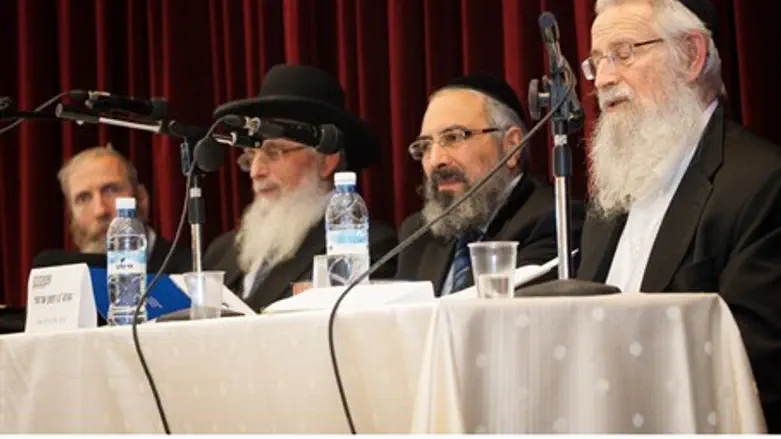
Rabbis and teachers who answer questions on Jewish law (halakha) on the Internet gathered in Jerusalem on Sunday, to discuss their work and the challenges they face. Some 60 Torah teachers took part in the conference, which was organized by the Yeshiva.org.il website, a leading Torah study website which is visited monthly by a quarter of a million people.
Rabbi Ezra Cohen, who heads the Yeshiva.org.il website, said at the opening of the conference that the Internet allows one to connect all Jews to one large community called "Israel."
He said that the website receives questions from around the world, ranging from Djerba in Tunisia and Iran, and going all the way to communities from Canada, Germany and more.
Rabbi Cohen noted that while the idea of written She'elot u-Teshuvot (abbreviated as "shutim", or Responsa) is far from new in the Jewish world, “the innovation is in the immediacy and accessibility” of the information. This availability also raises many questions, he noted, such as whether it is appropriate to respond to each question, what is the appropriate treatment a question should be given, whether a rabbi can educate through his reply and whether there is any chance in to make a change through “remote control”?
These issues were discussed by the teachers during the various sessions of the conference.
Written questions may not express the exact meaning of the writer and thus the answer may be inadequate or even be misleading. A small number of rabbis have used the intenet forum to promote iconoclastic halakhic views in their responsa that are not accepted in mainstream Orthodoxy without qualifying them.
Rabbi Zalman Baruch Melamed, the head of the Beit El Yeshiva and the rabbi of the town of Beit El, warned those answering questions online to take extra care with their words. In addition, he said, they should take care to address what was not explicitly asked by discussing the spiritual and educational aspects of each situation along with the Torah laws that apply.
Rabbi Yaakov Ariel, the rabbi of the city of Ramat Gan, said he sees the option of people being able to ask halakhic questions personally and anonymously as a good thing. He added that some of the claims being sounded that the Internet Responsa to some extent replaces the usual relationship between a rabbi and his congregation are untrue.
“The number of personal questions I receive by methods other than the Internet has not diminished in the least,” said Rabbi Ariel. “The number of phone calls I get with halakhic questions has not gone down. On the contrary.”
Judaism has a rich history of responsa, many of them asked and answered through correspondence, and going back to ancient times once not all Jewish communities were in Israel. They form a living history of Jewish life, showing what problems faced different communities and how Judaism deals with new phenomena while staying within halakhic parameters. In recent years, Bar Ilan University completed a gigantic database of responsa through the ages which is available in Hebrew on the web and is constantly being updated and expanded.
